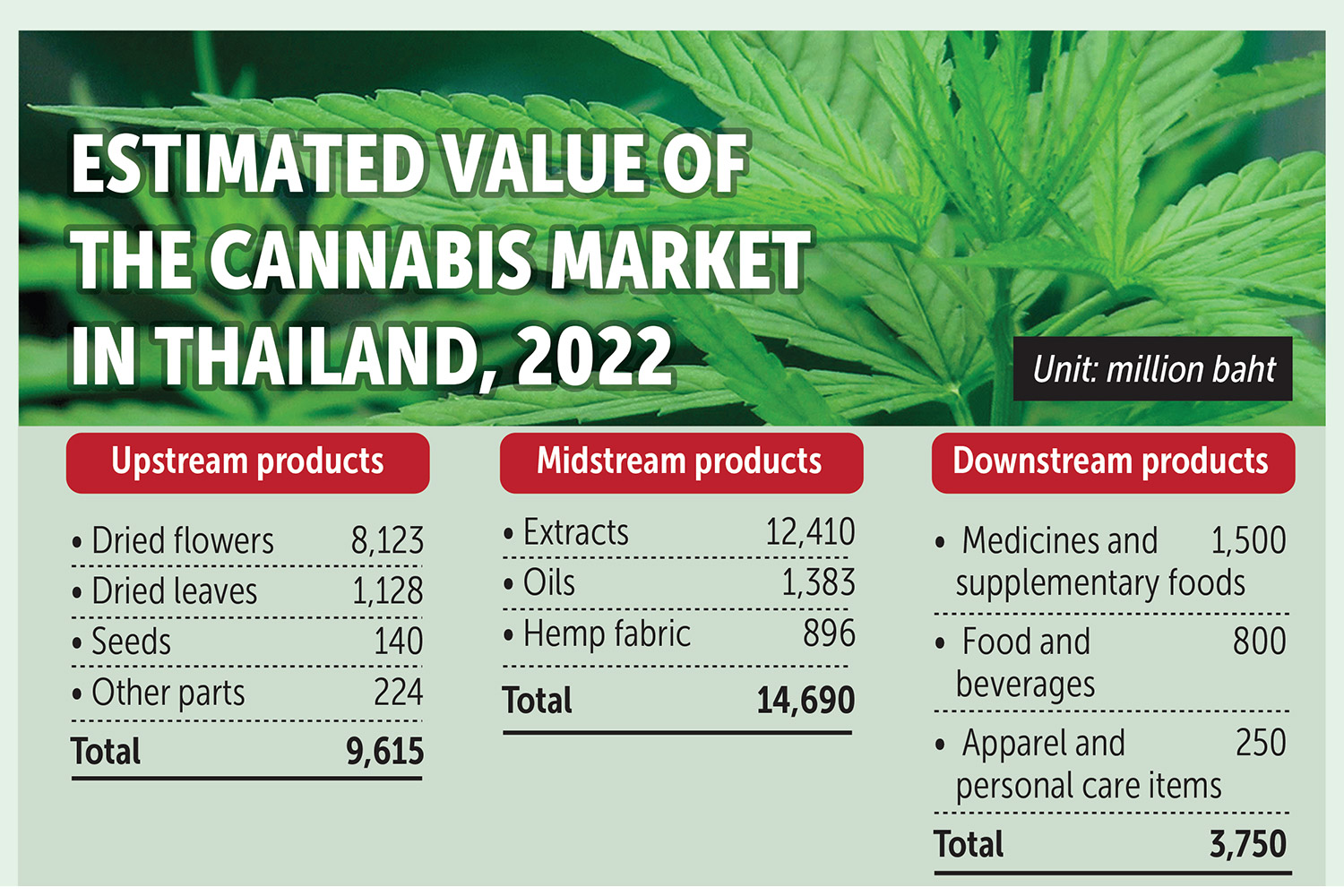
Thailand's cannabis market is expected to grow by about 15% a year between 2023 and 2025, with the market value forecast to reach up to 43 billion baht in 2025, according to the latest study by the University of the Thai Chamber of Commerce (UTCC).
Thanavath Phonvichai, the UTCC's president, said after its partial decriminalisation on June 9, cannabis undeniably has the potential to become Thailand's new key economic crop. The crop can generate a lot of income for growers and small enterprises, as well as create economic opportunities for Thailand, he said.
As of April 2022, cannabis plantations covered about 7,500 rai.
The UTCC estimates Thailand's cannabis market to tally 28.1 billion baht this year, with 9.61 billion from upstream products (dried flowers, dried leaves, seeds and other parts), 14.7 billion from midstream products (extracts, oils and fabric), and 3.75 billion from downstream products (medicines and supplementary foods, food and beverage, apparel and personal care items).

The market is expected to grow to 31.8 billion baht in 2023, 36.5 billion in 2024 and 43 billion in 2025, according to the study.
Mr Thanavath said cannabis is projected to generate income for farmers of 800,000 baht to 1.2 million baht per rai per year.
This is much higher than rice, which fetches farmers only 10,000-15,000 baht per rai per year.
The university's survey of 1,215 people nationwide from July 5-15 found most people still disagree with liberalisation of cannabis because of concerns about the misuse of marijuana among children and youths, as well as potential health issues.
Some 75% of respondents say they will not buy or consume products available in the market because of concerns about side effects, production standards and fear of overdoses.
According to Mr Thanavath, many people are open to cannabis use for medical or recreational benefits, but they want the weed's use to be supervised by experts.
People who break the rules of marijuana usage should face severe penalties, while the scope of liberalisation should be clearly defined, he said.
Mr Thanavath said people still have little knowledge about marijuana and hemp, while they have several concerns about their negative effects.
The government needs to do more research and work in an integrated manner to tackle such concerns, he said.
"For medical purposes, the Public Health Ministry has to collect more data and research from patients, in addition to working closely with the Agriculture and Cooperatives and Commerce ministries to come up with appropriate plans for plantation and marketing," said Mr Thanavath.







